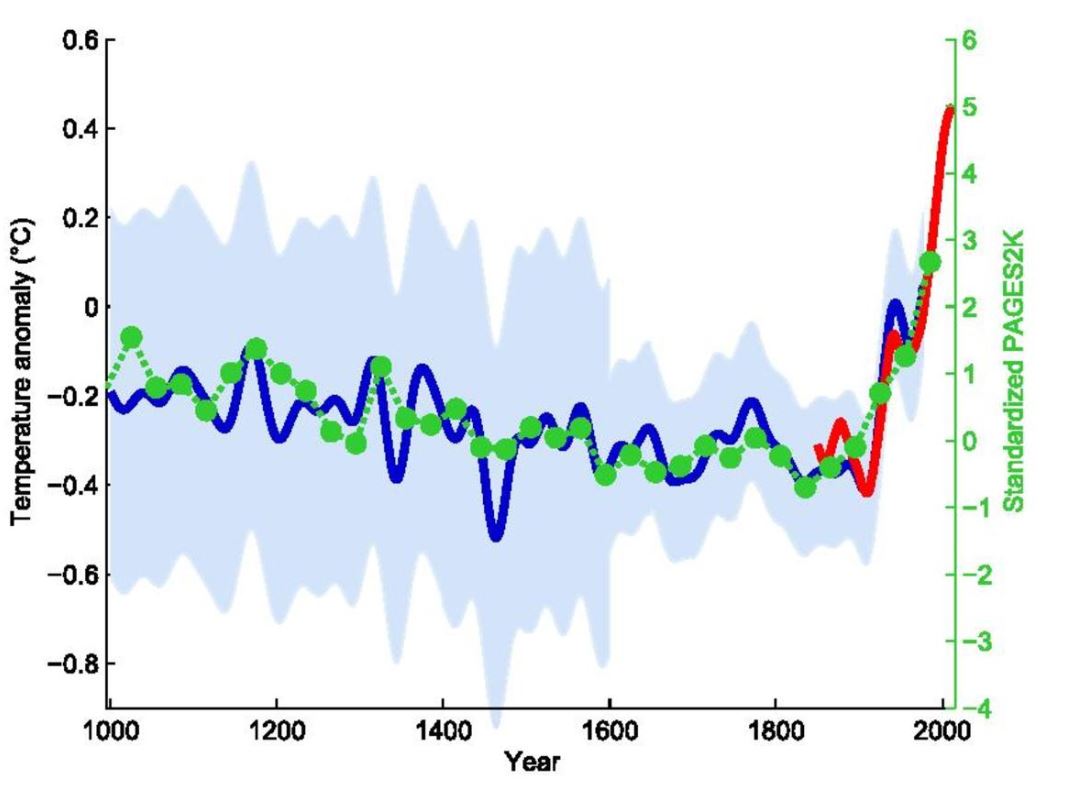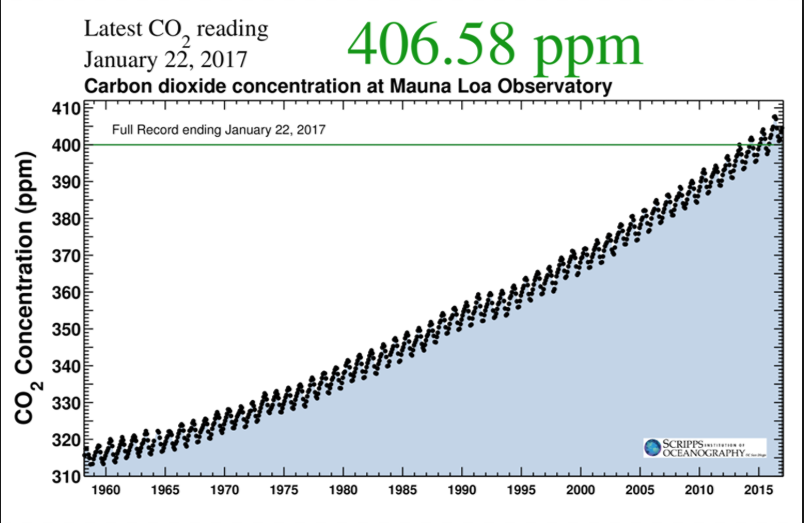Like many people following the news today, I find myself deeply worried about climate change. Scientists are offering more and more dire warnings about what to expect in just 10 to 20 years. And we’re actually experiencing weather events that have never or only extremely rarely before occurred: the massive Typhoon Mangkhut that slammed into Hong Kong this fall, the destructive wildfires just occurring in California, thousand-year floods following hurricane Harvey in the southeast of the US, Arctic sea ice shrinking year on year, and so on.
I remember being inspired by Al Gore’s An Inconvenient Truth a decade ago. The particular illustration of CO2 in the atmosphere and the brief lag in associated global temperature rise stood out to me: Gore called it a “hockey stick” graph because it ran along, very flat for a long time, only to rise up incredibly sharply around 1900. The trajectory was clear: if we continue on our path we will create an environment unlike that which humans had ever lived in. On the one hand, we should be afraid. On the other hand, the power to control all of this is in our collective hands.
Now, 10 years later, we have still failed to get the message. At least to the extent that Gore and others had hoped. In the year following Gore’s film, environmentalist Bill McKibben and others founded 350.org, an environmental NGO aimed at creating awareness and policies needed to get carbon dioxide in the atmosphere below 350 parts per million, a scientifically established ‘safe level’ which was passed around 1990. Today we are over 400 and climbing with 410 being hit in June 2018.

Where do we find hope?
I believe the facts are plain enough and have been for at least 10 years. Some reports of the coming problems being recognized by scientists go back to the 1960s or ‘70s. Facts are not enough. We need feelings to come into play. We need emotion as part of our motivation to act.
As a Kantian and a Buddhist, I have my suspicions about feelings as a source or motivation. After all, our goal is equanimity, isn’t it? And aren’t we taught that renunciation (of worldly affairs) is a necessary step in the spiritual process?
From the Kantian philosophical standpoint, “Sympathy can be especially problematic insofar as the sympathetic smile can “hide those corrupt attitudes” (210). One thinks here of the kind of person who will claim to sincerely feel bad about the plight of refugees, yet still insist that they ought to seek shelter anywhere but here.” (NDPR)
And yet, both Kant and Buddhism incorporate a wide array of emotions and emotionally evocative teachings. The Karaniya Mettā Sutta is filled with exhortations such as “Even as a mother protects with her life her child, her only child, so too should one cultivate lovingkindness toward all beings.”
And, “Nevertheless, Kant still thinks that sympathy does have a positive role to play, especially in young people: before reason is fully developed, it can provide incentive towards moral action. Moreover, even though it is not a perfect “good-detector,” sympathy can often color our perception of the world so as to make us more sensitive to the suffering of others.” (NDPR)
We are on a path of moral development. Emotions like sympathy might not be an end-goal of rationalist philosophers, and awakened Buddhists might be free of such states as well, acting spontaneously in accord with habits of wisdom and compassion.

Utilizing Emotions to solve Climate Change
In terms of Climate Change, perhaps we can learn from this developmental moral model and experiment with incentives toward moral action for young people or the climatologically naïve. We can encourage more artists, activists, and poets to paint the picture of suffering arising from climate change today and what will come if we fail to act.
I worry that without this, a relatively small minority of educated and concerned individuals will be unable to stir the hearts of the masses as needed to solve this global problem. Instead, others who sell only lies and false hopes will capture the sympathies of our fellow humans. This conscious move toward emotive engagement does not mean giving up on our facts or our ideals; but it means working with skillful means to get others to see those same facts and ideals as worthy of pursuit.
See more
Kant and the Faculty of Feeling (Notre Dame Philosophical Reviews)
How the World Passed a Carbon Threshold and Why It Matters (YaleEnvironment360)


Yes, the future looks bleak, but i remain hopeful. Note for example the recent demonstrations by school students in Australia, and the blocking of bridges by thousands of people in London. I also find the writings of David Loy very helpful for facing the facts yet not despairing.